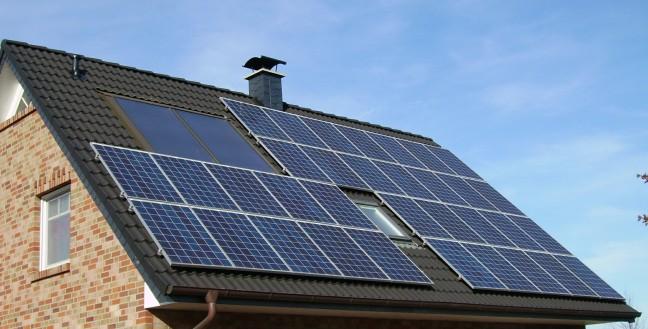A Dane County judge ruled against a WE Energies proposed extra charge for independent solar power energy users Friday.
WE Energies wanted to add a statewide demand charge to all independent solar energy users to make up for money lost by users not utilizing all WE Energies’ resources. It argued in court that the independent solar energy users create costs that their other non-renewable customers unfairly incur.
Currently in Wisconsin, utility companies have a billing mechanism built for independent energy users called “net metering,” Amy Heart, Alliance of Solar Power senior manager of public policy said. Net metering, she said, is a fair, clean billing system that enables appropriate accounting of energy purchased and energy stored.
“Under net metering, solar customers reduce their energy load by self-generating through a solar system on their roof, and store retail rate energy credits on the grid,” Heart said. “Utilities then sell this clean electricity at the retail rate to customers nearby. Eventually, the solar customer will utilize the stored energy credits through the net metering billing system.”
Heart said utility companies are proposing a fee for independent solar energy users who are not net metering customers. These customers have solar systems in place which do not export any energy to the grid owned by the utility companies.
The extra charge, Heart said, is discriminate against solar customers and the legal win means utility companies cannot get away with an attempt to shut down alternative energy options.
“The decision will encourage homeowners and companies to put solar power on their rooftops and the solar energy industry will continue to grow,” Heart said.
Brian Manthey, WE Energies spokesperson said, however, the charge is priced for fairness to all customers.
He said those using renewable energy sources cause the charges to increase for non-renewable customers. There are fixed costs like the price of poles, wires and meters which currently only non-renewable customers incur, even though the renewable customers use the utility grid.
Fun in the sun: Alliant Energy to study solar panel viability in Wisconsin
Heart noted, however, Nevada, Mississippi and Maine conducted independent studies on the costs and benefits of rooftop solar panels for all rate payers. She said every study revealed rooftop solar is a net benefit.
Richard Shaten, University of Wisconsin expert on economic and environmental impact of energy systems said Public Service Commission regulates WE Energies, who must submit all of their costs to the commission.
He said the Public Service Commission determines the electricity rate for customers by dividing up the combined cost of utility investments and price to produce electricity.
“When WE Energies says costs matter, their own stockholders do not lose money but rather their customers who do not use renewable energy incur the costs,” Shaten said. “If WE Energies has more expenses, they just pass it onto its customers.”
Shaten said it is a political argument that utility companies want to punish clean users with charges to deter them from renewable sources. Only one-tenth of 1 percent of the Wisconsin population WE Energies provides to uses independent solar energy so it will not have a significant impact on the company’s costs he said.
Shaten said the judge shot down an anti-environmental policy. He believes the Public Service Commission will soon appeal the decision and send it to the Wisconsin Supreme Court where a republican majority might overturn the judge’s ruling.
Heart said renewable resource usage is good for the Wisconsin public, and the Public Service Commission should not hinder it.
“It is imperative to start taking a look at what the public in the Public Service Commission means,” Heart said.
Correction: A previous version of this article incorrectly defined the term “net metering” and misidentified Wisconsin as having the highest fixed rate energy charges in the country. We regret this error.


















